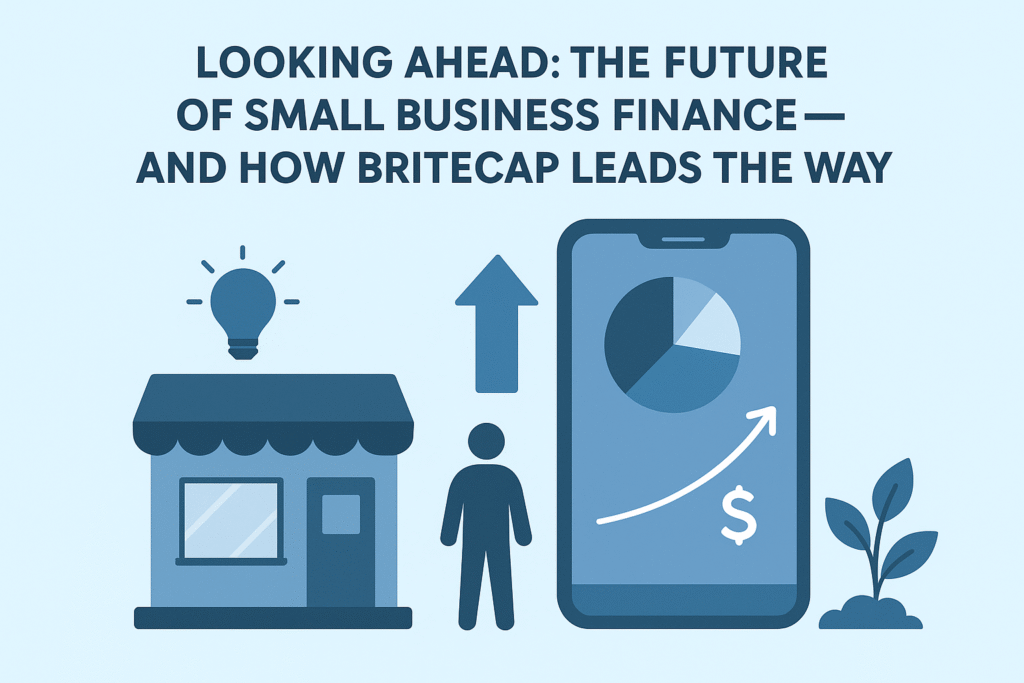In a rapidly evolving financial world, small businesses face both exciting opportunities and complex challenges. The need for accessible, transparent, and flexible funding options has never been greater as entrepreneurs seek ways to grow, adapt, and compete in a digital economy. Traditional banking methods are giving way to faster, data-driven financing solutions that cater to the unique needs of small enterprises. We will explore how the landscape of small business finance is changing, the trends shaping its future, and how innovative companies are redefining the way entrepreneurs access and manage business capital in the years to come.
Reimagining Access to Capital in a Digital Age
The traditional loan model, which once dominated business financing, is being reshaped by technology and shifting market demands. For years, small business owners relied heavily on banks for credit, often navigating lengthy approval processes and strict lending requirements. However, the digital revolution has introduced new financing pathways that prioritize accessibility, speed, and customization. Online platforms now utilize data analytics, AI-driven risk assessment, and automation to deliver faster decisions and more equitable lending terms. This shift empowers small business owners who may not have the credit history or collateral demanded by conventional lenders.
The new era of finance places the entrepreneur at the center, valuing their performance and potential rather than their paperwork. For small business owners, this change is transformative—it means greater financial inclusion, improved cash flow management, and the flexibility to seize opportunities without unnecessary delays. With small business financing from BriteCap Financial, entrepreneurs can experience this evolution firsthand, gaining access to funding solutions that align with their pace, purpose, and potential. As these technologies continue to evolve, we can expect financing to become even more intuitive, integrated, and responsive to real-time business needs.
The Rise of Flexible and Purpose-Driven Financing
One of the most significant changes in small business finance is the emergence of flexible funding solutions tailored to accommodate diverse business models. Instead of rigid repayment schedules or one-size-fits-all loan structures, lenders are now offering products that adjust to seasonal trends, cash flow cycles, and specific growth objectives. For instance, a retail business experiencing peak sales during the holidays might benefit from a repayment plan that adapts to its revenue fluctuations.
Similarly, service providers may prefer financing that scales with project milestones or client payments. This flexibility reflects a broader trend toward purpose-driven finance—funding that supports not only survival but also sustainable growth and expansion. It recognizes that every small business has its own rhythm, and financing should complement rather than constrain it. This adaptive approach also encourages innovation, allowing entrepreneurs to experiment, invest, and evolve without being burdened by traditional lending constraints. The future of small business finance will continue to move toward personalization, with financial partners acting as collaborators rather than gatekeepers.
Technology as the Bridge to Financial Empowerment
Technology is not merely a convenience—it is the cornerstone of the new financial ecosystem. Automation, artificial intelligence, and machine learning have streamlined every stage of the financing process, from application to approval to repayment tracking. For small business owners, this means fewer administrative hurdles and greater transparency in financial decision-making. Data-driven tools can analyze performance trends, forecast cash flow, and identify funding opportunities before challenges arise.
Moreover, digital integration allows business owners to connect their financial systems, accounting platforms, and sales data, creating a unified view of their operations. This synergy enhances decision-making and reduces the risk of financial mismanagement. Beyond efficiency, technology also fosters equity by opening doors for entrepreneurs who were historically overlooked by traditional lenders. Women-owned, minority-owned, and first-time small businesses now have greater access to fair and timely funding options. As digital tools grow more sophisticated, the future of small business finance will center on empowerment—giving entrepreneurs the information, access, and confidence to shape their financial destiny.
Read More: https://acubi.us/how-do-electricians-help-businesses-reduce-energy-waste-and-improve-efficiency/
BriteCap’s Vision for the Future of Small Business Finance
The company embodies this modern approach to business finance by combining technological innovation with a genuine commitment to small business success. Rather than relying solely on conventional metrics, the company uses data-driven insights to understand each business’s unique situation and potential. This allows for flexible financing solutions that meet immediate needs while supporting long-term growth. Entrepreneurs who partner with BriteCap benefit from streamlined applications, transparent terms, and fast funding—an approach that acknowledges the pace and realities of modern business.
What truly sets this model apart is its focus on empowerment and accessibility. By simplifying complex financial processes and delivering tailored solutions, BriteCap enables small businesses to remain agile in uncertain markets. Looking ahead, such an approach is not just about providing capital—it’s about creating a financial ecosystem that grows with the entrepreneur. This kind of partnership-driven model will likely define the future of small business finance, ensuring that innovation and inclusivity remain at its core.
Entrepreneurs will no longer need to conform to outdated lending models; instead, financing will conform to them—shaped around their goals, challenges, and aspirations. The future belongs to those who embrace this change, viewing finance not as an obstacle but as a catalyst for progress. As we look ahead, one thing is clear: the evolution of small business finance will continue to empower entrepreneurs, strengthen communities, and drive economic resilience in ways that were once unimaginable.



